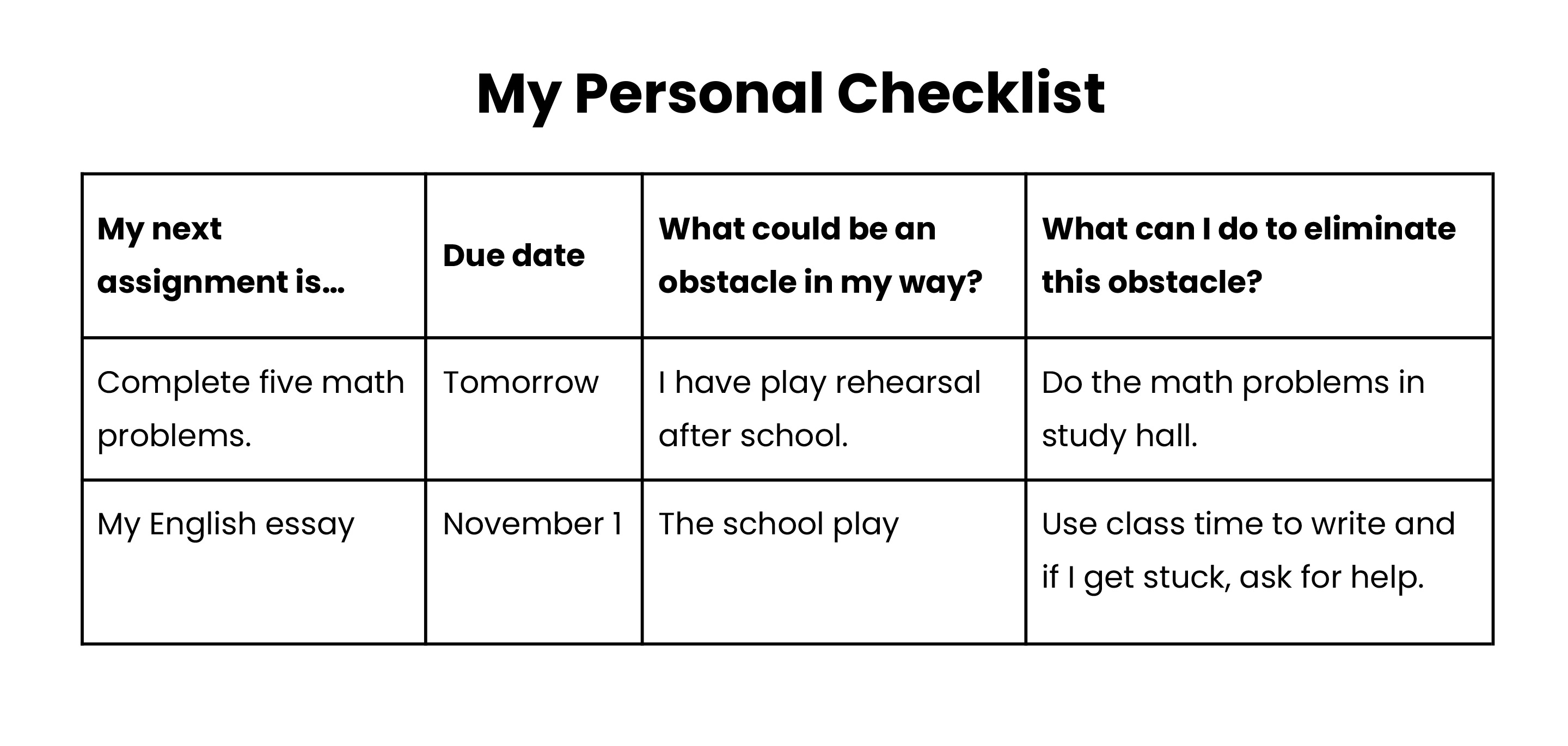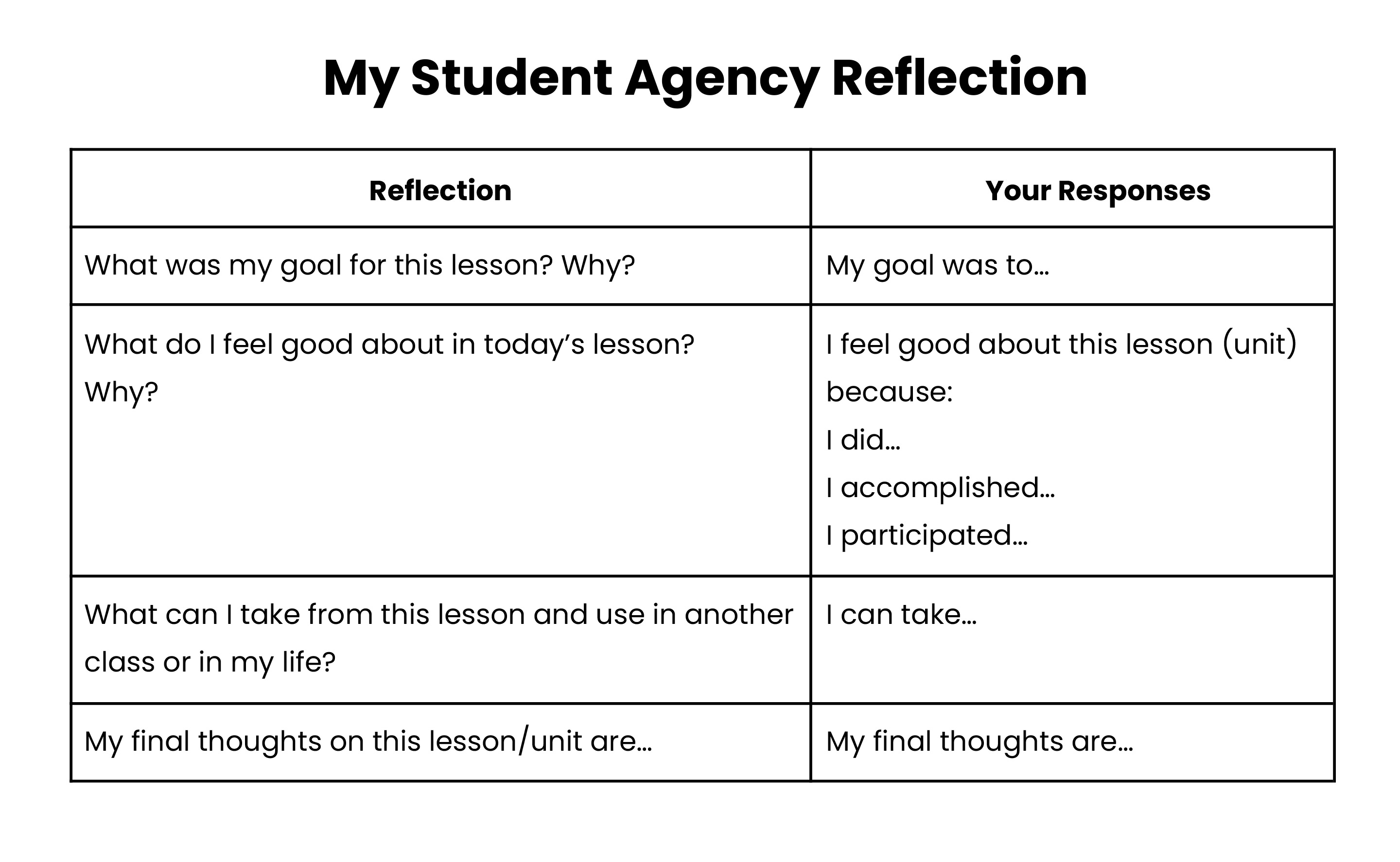How to Develop Self-Reliant Learners
Supporting students in developing self-regulation, executive function skills, and self-agency can improve their ability to succeed in school.
Your content has been saved!
Go to My Saved Content.As an instructional coach and reading specialist, I’ve often observed students in grades 4 to 8 who weren’t able to manage their emotions, complete everyday tasks unaided, or set future plans. It became clear that many students needed support in developing skills of self-regulation, executive function, and student agency. These skills have distinct definitions, and it’s up to us to give our students strategies to apply them in the classroom.
Self-Regulation SKILLS
When students are able to self-regulate, they can manage themselves in ways that support their learning. According to Verywell Health, self-regulation is the “ability to control your behavior and manage your thoughts and emotions in appropriate ways.” Clearly, the onus is on students to “control” or “manage” themselves—a challenging task for many. Consider setting aside time at the start of class, perhaps 15 minutes, to explicitly explain what self-regulation is and demonstrate how to apply related strategies in the classroom.
Psychology Today points to the empowerment that comes with self-regulation. It “enables children, as they mature, to direct their own behavior towards a goal, despite the unpredictability of the world and our own feelings.” Giving students strategies to become self-reliant learners encourages them to determine their own choices and control their own lives, even in a disruptive and chaotic world.
Self-Regulation Strategy: Our Core Values Ball Toss
Ask students to think of one core value that they believe is important to their school success, and ask them to define it in their own words. For example, a student might offer the word kindness as an important core value and define it as “being nice to one another.” Ask students to write their value and its definition on a piece of paper, offering markers to make their value and definition as creative as possible. Hang up the core values and definitions around the room to cement their importance.
One way to support students in managing themselves is to get them up and moving in a task that requires concentration and is risk-free. Have students share a class value and offer an example from their own life. This gives you insight into what students value, and their example of that value is the foundation for building classroom community.
Here’s how to do this student-led strategy:
- Each student receives one foam ball.
- Half of the class writes one of their core values on the ball from the list they created.
- The other half of the class writes an example of the core value without writing the core value on the ball.
- Ask students to make two lines facing each other; one line is the core value and the other line is the example. Ideally, one line should stand at the front of the room, and one line could stand at the back of the room.
- Ask students to gently toss the ball to each other.
- Did the core value happen to match the example? If not, ask students to rearrange themselves and try again until all core values have matched their example.
Executive Function Skills
Executive function skills give our students opportunities to be independent learners. The Cleveland Clinic explains that executive function is a skill “that you use to manage everyday tasks like making plans, solving problems, and adapting to new situations.” As adults, we have the life experiences necessary to assess and reflect on situations and then determine what to do. However, our students often don’t have that experience and sometimes respond to a list of demands with strong emotions. As a result, many students have difficulty with planning, are challenged when trying to solve problems, and are unable to utilize transference from one situation to another.
When students lack executive function skills, the American Speech-Language-Hearing Association explains that this can adversely affect “an individual’s ability to complete functional tasks, … completing assignments, meeting deadlines, planning for activities.” Think about it. Do you see your students with incomplete planners, missing assignments, or unable to coordinate their next project? The ability to manage these tasks is paramount to a successful school experience. Without executive function skills, many students are academically hindered—wanting to move forward without knowing how.
Executive Function Strategy: 5-Minute Personal Checklist
In this strategy, students have the first five minutes of class to go through their personal checklist. My Personal Checklist gives students a visual representation of what they need to complete and supports their executive function in completing those functional tasks.

Even with a checklist, the assignment still might not be completed on time. Create scenarios where students can role-play so they feel comfortable when approaching a teacher for help. I recommend setting aside at least a quarter or half of the class time so students can practice. You can model how to ask for an appointment, or how to ask for help, or how to ask for an extension on an assignment. When students have the appropriate language to approach a teacher with confidence, the obstacle won’t seem so overwhelming.
Student Agency Skills
To embrace learning, apply it, and reflect upon it, practicing the skill of student agency helps learners be successful and empowered. According to KnowledgeWorks, “Students with agency are encouraged to set goals, make learning decisions, reflect on their progress and adapt as they grow.”
Without this skill, students feel bored, powerless, and unprepared for their lives beyond the classroom. According to Gallup, “About a third of students (34 percent) agree or strongly agree that they always feel bored in class.” This prohibits students from setting goals because they don’t see a reason to try. Gallup further states that “many students feel like they have no control over their learning,” which can lead to poor decision-making. If students believe they have no control, then they “are inattentive, [and] are less likely to participate.” This causes an inability to reflect on their learning and progress from it.
Student Agency Strategy: Reflection
The skill of student agency is essential for empowering students to be independent and engaged learners. However, as with any strategy, it’s important for teachers to model the purpose and relevance. Consider offering this reflection activity during a pause in the lesson to gather students’ insights. You could also do this after the lesson or as a formative assessment.
You can use the student agency reflection as an opportunity to make adjustments in your teaching. If many students aren’t able to state their goal for the lesson, you might want to reintroduce the learning objective or success criteria, or reteach the purpose of the essential question. In other words, if students are unclear about the goal of the lesson, then they’re more apt to be disengaged because they’re unsure of the purpose.

Additionally, you might want to consider giving students the opportunity to share why they feel good about the lesson (so far): What did they do to feel positive? What did they accomplish? How did participation help them in this lesson?
When students have the chance to share their positive reflections with their classmates, they feel a true sense of accomplishment and are more willing to stay with the work.
